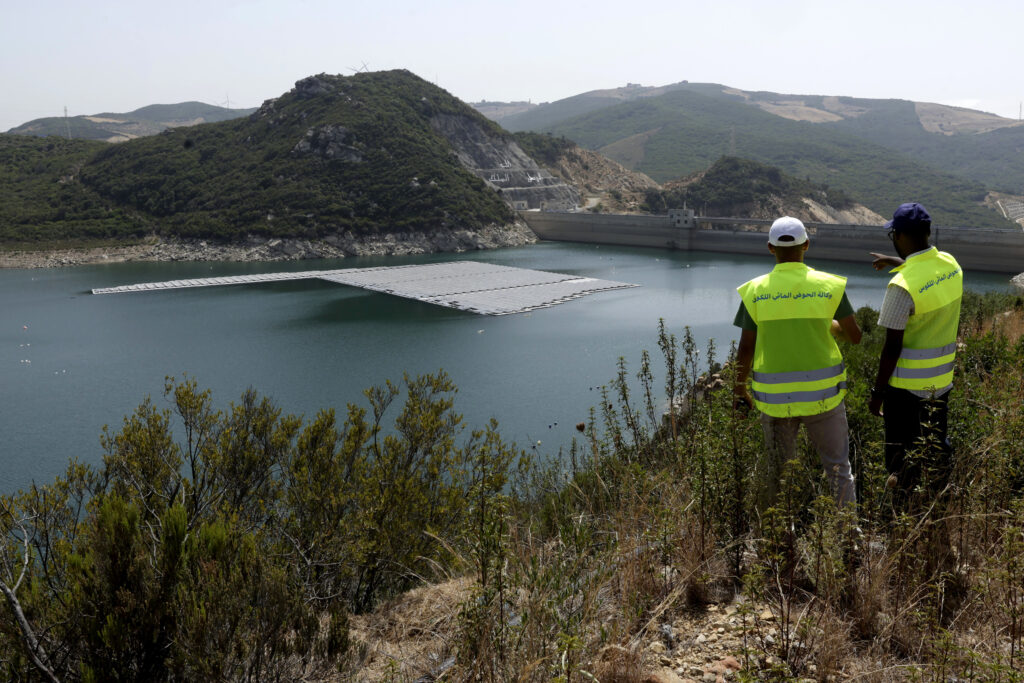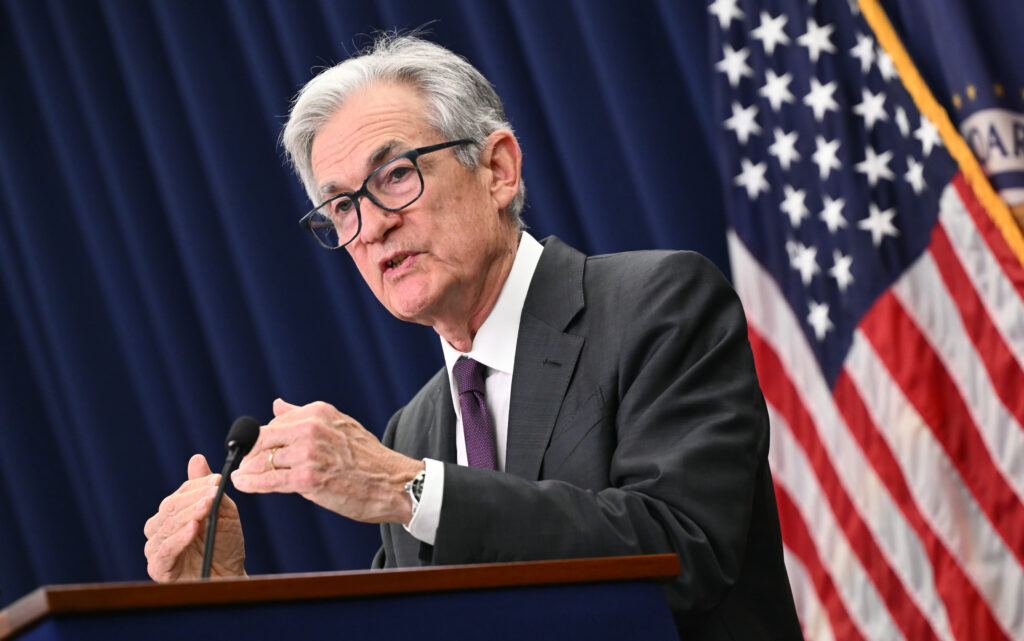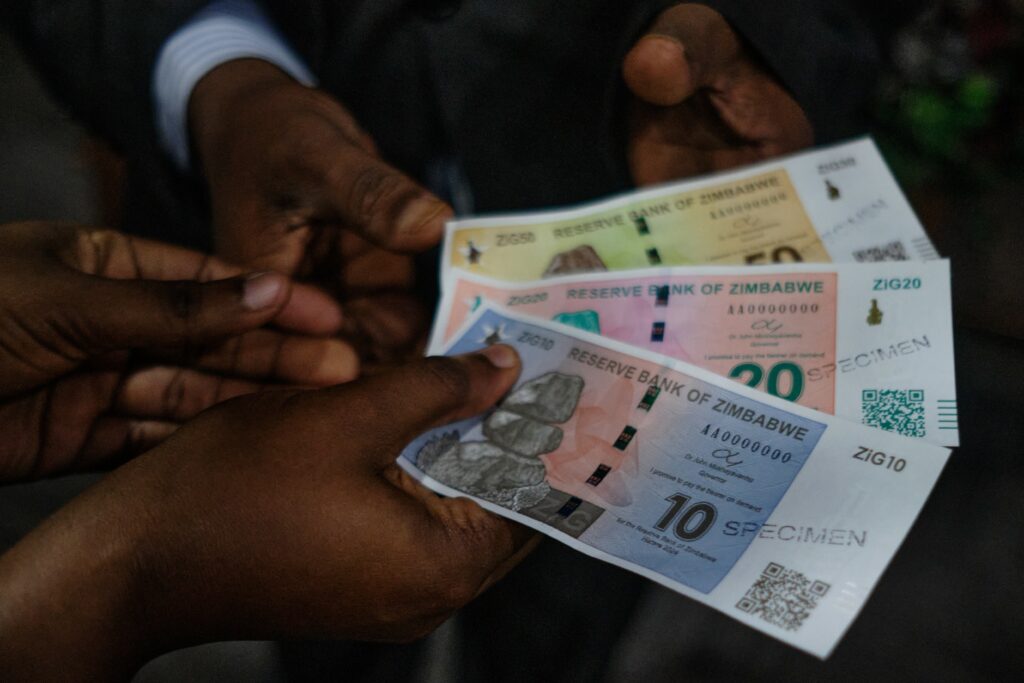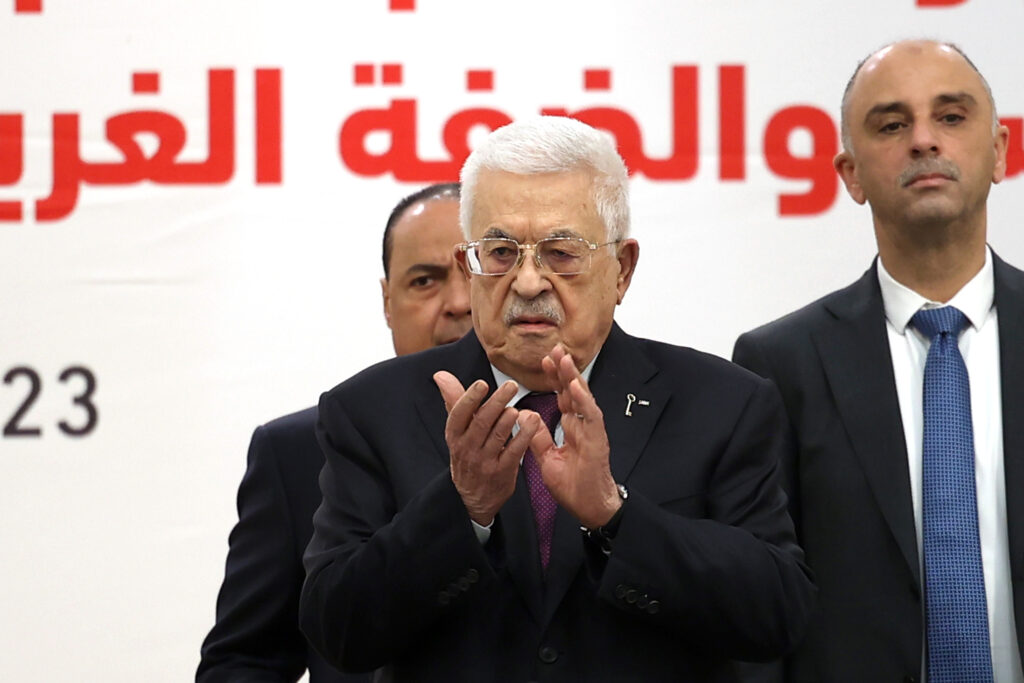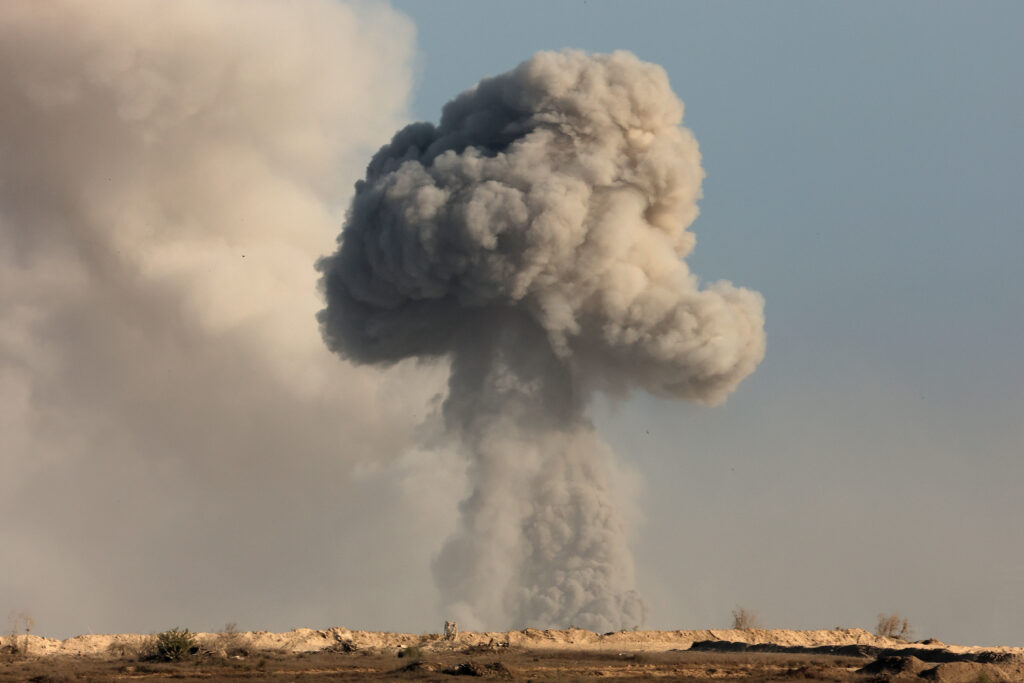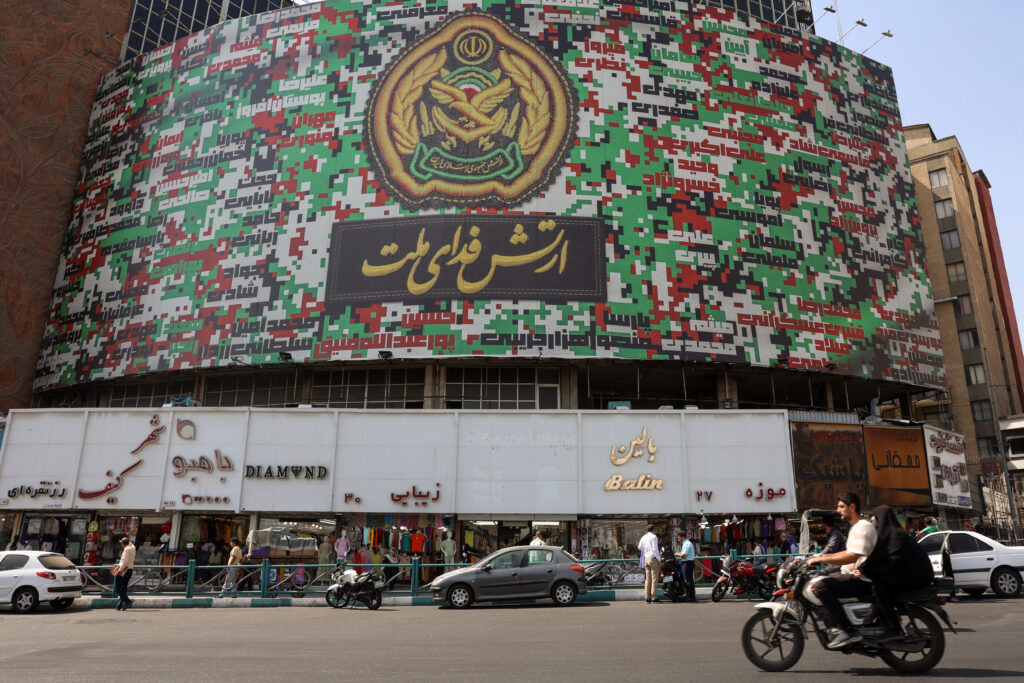AFP Asia Business
Morocco tests floating solar panels to save water, generate power
Sun-baked Morocco, grappling with its worst drought in decades, has launched a pilot project aimed at slowing water evaporation while simultaneously generating green energy using floating solar panels.At a major reservoir near the northern city of Tangier, thousands of so-called “floatovoltaic” panels protect the water’s surface from the blazing sun and absorb its light to generate electricity.Authorities plan to power the neighbouring Tanger Med port complex with the resulting energy, and if it proves a success, the technology could have far wider implications for the North African kingdom.According to official figures, Morocco’s water reserves lost the equivalent of more than 600 Olympic-sized swimming pools every day to evaporation between October 2022 and September 2023.Over that same period, temperatures averaged 1.8C higher than normal, meaning water evaporated at a higher rate.Alongside other factors like declining rainfall, this has reduced reservoirs nationwide to about one-third of their capacity.Water ministry official Yassine Wahbi said the Tangier reservoir loses around 3,000 cubic metres a day to evaporation, but that figure more than doubles in the hot summer months.The floating photovoltaic panels can help cut evaporation by about 30 percent, he said.The water ministry has said the floating panels represent “an important gain in a context of increasingly scarce water resources”, even if the evaporation they stop is, for now, relatively marginal.Assessment studies are underway for another two similar projects in Oued El Makhazine, at one of Morocco’s largest dams in the north, and in Lalla Takerkoust near Marrakesh.Similar technology is being tested in France, Indonesia and Thailand, while China already operates some of the world’s largest floating solar farms.- ‘Pioneering’ -Since the Moroccan pilot programme began late last year, more than 400 floating platforms supporting several thousand panels have been installed.The government wants more, planning to reach 22,000 panels that would cover about 10 hectares at the 123-hectare Tangier reservoir.Once completed, the system would generate roughly 13 megawatts of electricity — enough to power the Tanger Med complex.Authorities also have plans to plant trees along the banks of the reservoir to reduce winds, believed to exacerbate evaporation.Climate science professor Mohammed-Said Karrouk called it a “pioneering” project.He noted, however, that the reservoir is too large and its surface too irregular to cover completely with floating panels, which could be damaged with fluctuating water levels.Official data shows water reserves fed by rainfall have fallen by nearly 75 percent in the past decade compared with the 1980s, dropping from an annual average of 18 billion cubic metres to only five.Morocco has so far mainly relied on desalination to combat shortages, producing about 320 million cubic metres of potable water a year.Authorities aim to expand production to 1.7 billion cubic metres yearly by 2030.Karrouk said an urgent priority should be transferring surplus water from northern dams to regions in central and southern Morocco that are more impacted by the years-long drought.The kingdom already has a system dubbed the “water highway” — a 67-kilometre canal linking the Sebou basin to the capital Rabat — with plans to expand the network to other dams.
Stocks slide as US inflation clouds rates outlook
Stock markets fell Friday, with Wall Street indexes retreating from record highs as a key US inflation reading accelerated, lowering the possibility of sustained interest rate cuts in the coming months.Investors widely expect a cut next month to bolster the world’s largest economy after Federal Reserve chief Jerome Powell signaled last week the risks of …
Stocks slide as US inflation clouds rates outlook Read More »
In whirlwind tour, Qatari royal commits $70bn to southern Africa
Qatari investment firm Al Mansour Holding has pledged $70 billion in investments across four southern Africa countries in a 10-day tour, a move analysts call strategic as US funding retreats from the continent.Group leader and royal family member Sheikh Mansour bin Jabor bin Jassim Al Thani has met the leaders of Botswana, Mozambique, Zambia and Zimbabwe to sign commitments of major financing for projects spanning energy, agriculture, tourism and mining.In Maputo this week, he signed a $20 billion partnership agreement with President Daniel Chapo aimed at supporting government initiatives including in health and education, the Mozambique presidency announced.Days earlier, across the border in Zimbabwe, his company committed to opening its purse to the tune of $19 billion, including $500 million for a hydro-electricity project, the government said.It has also pledged $19 billion for Zambia, reportedly among the biggest bilateral pacts in the country’s history, and $12 billion in Botswana, the countries announced.Botswana President Duma Boko said the deal — worth more than half the diamond-rich country’s gross domestic product — had been “quietly” thrashed out for months, vowing: “This is just the beginning.”It was particularly welcome as Boko had to declare a public health emergency on August 25 after hospitals ran out of essential medicines due to depleted government coffers.- ‘Geopolitical ballast’ -The whopping funding pledges come as largely poor countries in the resource-rich region grapple with sweeping cuts in US aid.”Global uncertainty has intensified under President Donald Trump’s second term, with rising US protectionism, tariffs, and reduced aid flows leaving African states searching for alternative partners,” said economist Brendon Verster at the Oxford Economics Africa think-tank. “Gulf capital thus not only serves as an investment push, but also a geopolitical ballast, offering Africa a hedge against Western retrenchment while giving Qatar and its Gulf neighbours greater influence,” he said.The UAE has also been calling, with Angola signing 44 agreements worth $6.5 billion during a visit by President Sheikh Mohamed bin Zayed on August 25.Details of the deals such as timelines and what may be expected in return have not been made public, and the huge sums involved have raised some questions.The pledges were some of the biggest ever in the region and should be regarded with some “suspicion”, said Johannesburg-based political analyst Marisa Lourenco. “The Middle East is emerging as the new big geopolitical player in Africa’s mostly mining market but it could also be trying to secure gas supplies,” she told AFP. Media reports said the Qatari sheikh was expected to also visit other countries on the continent, with pledges that may top $100 billion in total.
US to refuse visas to Palestinian officials at UN summit on state
The United States said Friday it will deny visas to members of the Palestinian Authority to attend next month’s UN General Assembly, where France is leading a push to recognize a Palestinian state.The extraordinary step further aligns President Donald Trump’s administration with Israel’s government, which is fighting a war against Palestinian militant group Hamas in Gaza.Israel adamantly rejects a Palestinian state and has sought to lump together the West Bank-based Palestinian Authority with rival Hamas.”Secretary of State Marco Rubio is denying and revoking visas from members of the Palestine Liberation Organization (PLO) and the Palestinian Authority (PA) ahead of the upcoming United Nations General Assembly,” the State Department said in a statement.”The Trump administration has been clear: it is in our national security interests to hold the PLO and PA accountable for not complying with their commitments, and for undermining the prospects for peace,” it said.Using a term favored by Trump to deride his legal troubles while out of office, the State Department accused the Palestinians of “lawfare” by turning to the International Criminal Court and International Court of Justice to take up grievances with Israel.It called on the Palestinian Authority to drop “efforts to secure the unilateral recognition of a conjectural Palestinian state.”Israeli Foreign Minister Gideon Saar, writing on X, thanked the Trump administration “for this bold step and for standing by Israel once again.”The Palestinian Authority called for the United States to reverse its decision, which it said “stands in clear contradiction to international law and the UN Headquarters Agreement.”- Abbas hopes to attend -Palestinian Authority president Mahmud Abbas, a veteran 89-year-old leader who once had cordial relations with Washington, had planned to attend the UN meeting, according to the Palestinian ambassador to the United Nations, Riyad Mansour.UN spokesman Stephane Dujarric said it was “important” for all states and observers, which includes the Palestinians, to be represented at a summit scheduled for the day before the General Assembly begins.”We obviously hope that this will be resolved,” Dujarric said.The United States and Israel have accused France and other powers of rewarding Hamas, which launched an unprecedented attack on Israel on October 7, 2023, through their recognition of a Palestinian state.French President Emmanuel Macron, exasperated by the relentless nearly two-year Israeli offensive on Gaza in response to the attack, has argued that there can be no further delay in pushing forward a peace process.Since his announcement, Canada and Australia also said they would recognize a Palestinian state and Britain said it would do so unless Israel agrees to a ceasefire in Gaza.- Shattering norms -Under an agreement as host of the United Nations in New York, the United States is not supposed to refuse visas for officials heading to the world body.The State Department insisted it was complying with the agreement by allowing the Palestinian mission.Activists each year press the United States to deny visas to leaders of countries that they oppose, often over grave human rights violations, but their appeals are almost always rejected.In a historic step in 1988, the General Assembly convened in Geneva rather than New York to hear PLO leader Yasser Arafat after the United States refused to allow him in New York.In 2013, the United States refused a visa to Sudan’s then president Omar al-Bashir, who faces an ICC arrest warrant over allegations of genocide in Darfur.Trump plans to attend the General Assembly, where he will deliver one of the first speeches in a marathon session of leaders, but his administration has sharply curtailed relations with the United Nations and other international institutions.Trump has moved to pull out of the World Health Organization and UN climate pact. He has also moved to slap sanctions on ICC judges over an arrest warrant for Israeli Prime Minister Benjamin Netanyahu.
Israel army says Gaza City now ‘a dangerous combat zone’
The Israeli military declared Gaza City “a dangerous combat zone” on Friday ahead of a looming offensive to conquer the Palestinian territory’s largest city after almost two years of devastating war.Israel is under mounting pressure at home and abroad to end its offensive in Gaza, where the vast majority of the population has been displaced at least once and the United Nations has declared a famine.The Israeli military, however, is gearing up to expand the fighting and seize Gaza City, with its Arabic-language spokesman saying on Friday: “We are not waiting.”We have begun preliminary operations and the initial stages of the attack on Gaza City, and we are currently operating with great force on the outskirts of the city,” Avichay Adraee said on X.Late on Friday, Israeli military chief Lieutenant General Eyal Zamir said in a video statement his forces were “enhancing the strikes in the Gaza City area, and we will intensify our efforts in the coming weeks”.The UN estimates that nearly a million people currently live in Gaza governorate, which includes Gaza City and its surroundings.The UN declared a famine in Gaza governorate last week, blaming “systematic obstruction” by Israel of humanitarian aid deliveries.A military statement on Friday said that Gaza City now “constitutes a dangerous combat zone”, and daily pauses in military activity that had allowed limited food deliveries would no longer apply there.The military did not call for the population to leave immediately, but Adraee said earlier this week that the city’s evacuation was “inevitable”.In southern Gaza City on Friday, AFP footage showed Palestinians picking through the wreckage of a building following an Israeli strike. Mohammed Abu Qamar, 42, who is originally from Jabalia camp in northern Gaza but was heading south, said his “heart is burning”.”We don’t want to leave our home. We’re exhausted,” he told AFP by telephone. “Death is closing in around us.”- ‘Fear chases us’ -In a statement on Thursday, COGAT, the Israeli defence ministry body that oversees civil affairs in the Palestinian territories, said it was undertaking preparations “for moving the population southward for their protection”.Aid groups on the ground have warned against expanding the military campaign.On Friday, Philippe Lazzarini, head of the UN’s Palestinian refugee agency UNRWA, warned that there were “nearly one million people between the city and the northern governorate who basically have nowhere to go, have no resources even to move”. Abdul Karim Al-Damagh, 64, told AFP he was heading south and that it was the fifth time he had been displaced.”Today, once again, I must abandon what remains of my home and memories… The south may be a bit quieter than here, but it’s not safe — fear chases us, and death is always near,” he said.Spokesman Adraee said the military would intensify its strikes until all hostages held in Gaza were returned and Hamas was dismantled “militarily and politically”.The military said it had recovered the remains of two hostages during an operation in Gaza. It identified one as Ilan Weiss, who was killed in the Hamas attack that triggered the war and his body taken to Gaza. The name of the second hostage has yet to be released.Hamas warned Israel that its planned offensive in Gaza City would subject hostages in the area to the “same risks” as its fighters. “We will take care of the prisoners the best we can, and they will be with our fighters in the combat and confrontation zones, subjected to the same risks and the same living conditions”, the spokesperson for Hamas’s armed wing, Abu Obeida said.Of the 251 hostages seized during the October 2023 attack, 47 are still being held in Gaza, around 20 of whom are believed to be alive.- ‘Endless’ horrors -Gaza’s civil defence agency reported at least 55 people killed by Israeli forces across the Palestinian territory on Friday.Asked for comment by AFP, the Israeli military requested coordinates to look into the reports.Media restrictions in Gaza and difficulties in accessing many areas mean AFP is unable to independently verify the tolls and details provided by the civil defence agency or the Israeli military.UN chief Antonio Guterres has condemned the “endless catalogue of horrors” in Gaza, calling for accountability and warning of potential war crimes.Hamas’s October 2023 attack resulted in the deaths of 1,219 people, mostly civilians, according to an AFP tally based on Israeli figures.Israel’s retaliatory offensive has killed at least 63,025 Palestinians, most of them civilians, according to figures from the health ministry in Hamas-run Gaza that the UN considers reliable.
Europeans tell Iran offer on table to avoid sanctions
European powers said Friday they were ready to drop a new sanctions push on Iran if it addresses concerns on its nuclear program over the next month, but Tehran denounced the offer as insincere.Britain, France and Germany, known as the E3, triggered the so-called “snapback” mechanism the previous day to reinstate UN sanctions on Tehran for failing to comply with commitments made in a 2015 deal over its nuclear program.In July, “we offered Iran an extension to snapback, should Iran take specific steps to address our most immediate concerns,” Barbara Woodward, the British ambassador to the United Nations, said alongside her German and French counterparts ahead of a closed-door Security Council meeting on the issue.”As of today, Iran has shown no indication that it is serious about meeting” the E3’s requests, she said.But triggering the snapback mechanism “does not mark the end of diplomacy. Our extension offer remains on the table,” Woodward said.On a visit to Copenhagen, EU foreign policy chief Kaja Kallas said that the 30-day window before the sanctions took effect offered an “opportunity” for diplomacy.”We have this 30 days to sort things out,” she told reporters.The 2015 deal negotiated under former US president Barack Obama offered Iran sanctions relief in return for drastically scaling back its nuclear work. President Donald Trump effectively killed the deal during his first term when he pulled out the United States and imposed sweeping US sanctions, including on countries that bought Iranian oil.Trump had moved toward diplomacy in his second term but Israel swept the push aside in June when it carried out a major bombing campaign in Iran, which the United States eventually joined.Secretary of State Marco Rubio said Thursday the United States was also open to direct talks with Iran.- Iran cries foul -Iran accused the Europeans of bad faith and “blackmailing” Tehran by speaking of the 30-day window.The E3 “has put forward an extension plan full of unrealistic conditions This is a hypocritical move,” Iran’s ambassador to the United Nations, Amir-Saeid Iravani, told reporters after the Security Council meeting. “They are demanding conditions that should be the outcome of the negotiations, not the starting point, and they know these demands cannot be met,” he said. Iranian Foreign Minister Abbas Araghchi warned again via social media of “significant adverse impacts” of the European decision, including on Iran’s relationship with UN nuclear inspectors, who this week were allowed back to observe the key Bushehr plant.Russia and China have proposed extending the resolution behind the 2015 deal, which they signed, for another six months.Russia said President Vladimir Putin will meet with his Iranian counterpart Masoud Pezeshkian on Monday on the sidelines of a gathering in China.The Russian foreign ministry urged the Europeans to reconsider the sanctions, which it said risked “irreparable consequences.”Western countries accuse Iran of seeking to acquire nuclear weapons — something Tehran denies, defending its right to what it insists is a civilian nuclear program.

